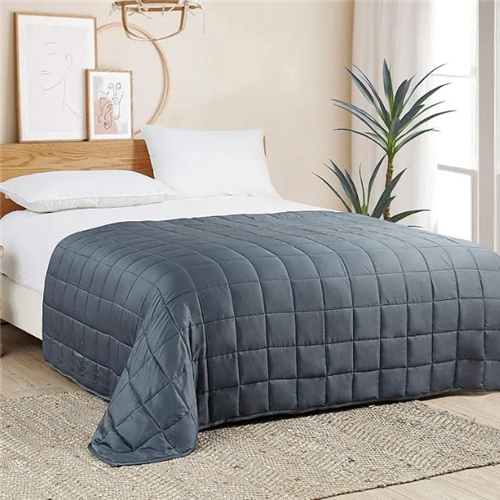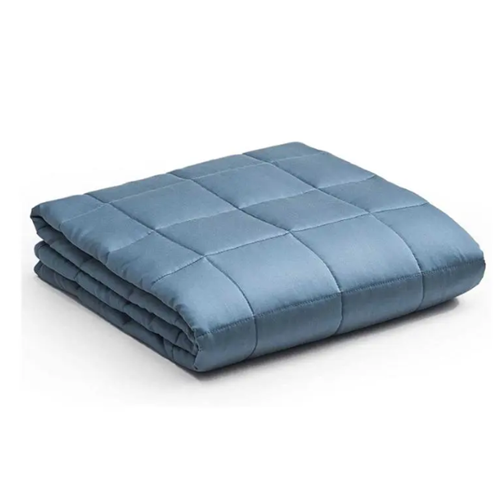Weighted blankets have become increasingly popular in recent years as a potential treatment for a variety of sleep disorders. These blankets are often filled with materials such as glass beads or plastic pellets and are designed to provide gentle, even pressure to the body, mimicking the feeling of being hugged or held. This article examines the relationship between weighted blankets and sleep disorders to see if they can actually help people get a better night’s rest.
Sleep disorders such as insomnia, anxiety, and restless legs syndrome affect millions of people around the world. These conditions can lead to a variety of problems, including fatigue, irritability, and decreased cognitive function. As a result, many people are looking for effective ways to improve their sleep quality. Weighted blankets have become a popular choice, with proponents claiming they can help relieve symptoms associated with these conditions.
One of the main mechanisms by which weighted blankets aid sleep is through deep pressure stimulation (DPS). This therapeutic technique involves applying firm, gentle pressure to the body, which can promote relaxation and reduce anxiety. Studies have shown that DPS can increase serotonin and melatonin levels while reducing the stress hormone cortisol. This biochemical shift can produce a calming effect, making it easier for people to fall asleep and stay asleep throughout the night.
Several studies have investigated the effects of weighted blankets on sleep quality. A major study published in the Journal of Clinical Sleep Medicine found that participants who used weighted blankets reported significantly improved sleep quality and fewer insomnia symptoms. The study highlighted that the calming effects of weighted blankets helped participants feel more secure and relaxed, leading to longer, uninterrupted sleep.
Weighted blankets may provide additional benefits for people who suffer from anxiety disorders. Anxiety disorders often manifest as racing thoughts and heightened physiological arousal, making it difficult to relax at night. The comforting weight of a weighted blanket can help calm people and provide a sense of security, which can ease anxiety symptoms. Many users report feeling more relaxed and less anxious when using a weighted blanket, which can help to achieve a more restful sleep experience.
However, it is important to note that weighted blankets are not a one-size-fits-all solution. While many people have found relief from sleep disturbances through the use of a weighted blanket, others may not experience the same benefits. Factors such as personal preference, severity of sleep disturbance, and personal comfort can all affect the effectiveness of a weighted blanket. It is recommended that individuals consult a healthcare professional before incorporating a weighted blanket into their sleep routine, especially if they have underlying health conditions.
In summary, weighted blankets have emerged as a promising tool for those who suffer from sleep disorders. Through the principles of deep pressure stimulation, these blankets can promote relaxation, reduce anxiety, and improve overall sleep quality. While they may not be a one-size-fits-all solution, many users report positive experiences and significant improvements in sleep patterns. As research continues to explore the benefits of weighted blankets, they may become an increasingly popular option for those seeking a better night’s rest. If you’re considering trying a weighted blanket, it may be worth exploring how it can fit into your sleep routine and potentially improve your overall well-being.
Post time: Dec-09-2024



